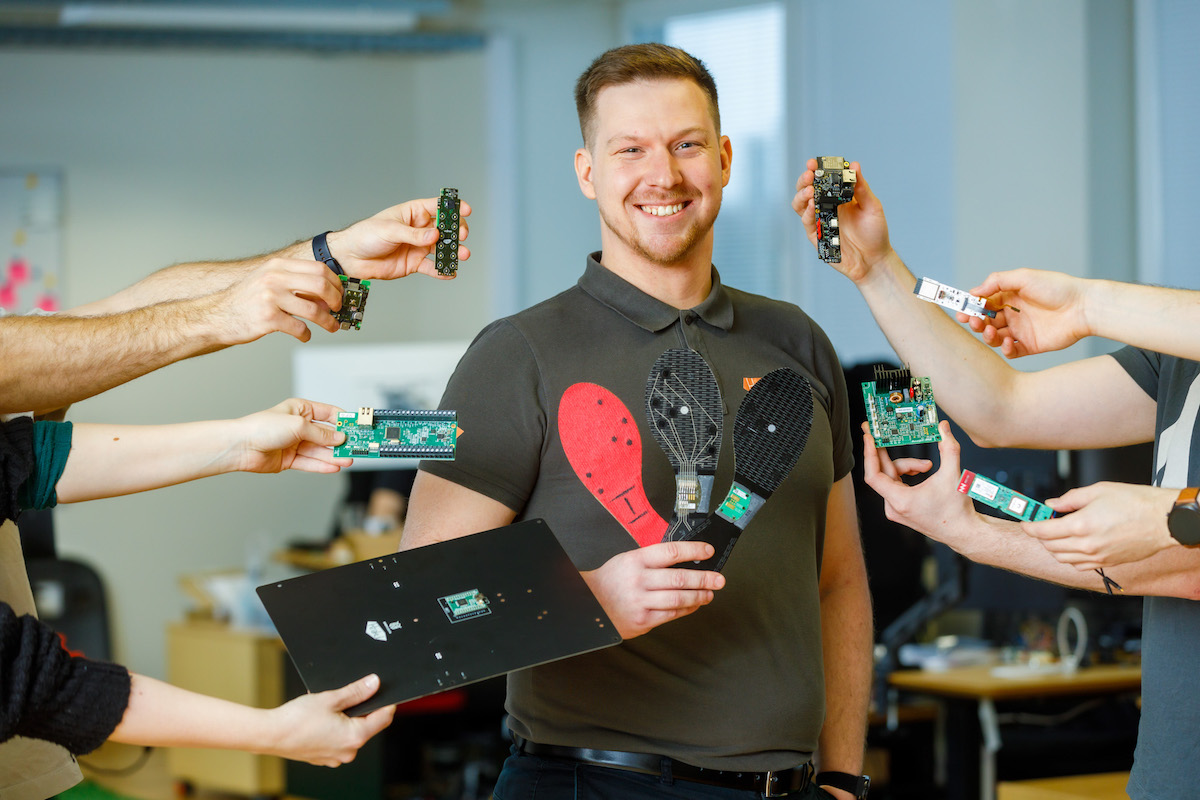Kristjan Tozen graduated from Tallinn University of Technology (TalTech) with a bachelor’s degree in electronics and telecommunications and worked in electronics for over eight years. At only 27 years old, Kristjan became the CEO of Krakul, Estonia’s leading Internet of Things and autonomous systems development company.
What are your duties?
If you imagine the company as a ship, my job is to steer and see which port we want to reach. Primarily, my focus is on long-term challenges. I also have to take care of the customers, and now the sales work has mainly been on me. In addition, I represent the company and carry the vision and morals of the firm to keep everyone happy. Part of the manager’s job is to make sure that the engineers are motivated so that we can provide maximum value to each customer. We have a very strong team, responsibilities are in place, so there is no need for micromanagement.
What does your working day look like?
My working days are very different. I spend more than half of my time in meetings. We try to hold meetings effectively, but there are many different people and parties. Occasionally, there are also meetings outside the building, fairs, visits, and the hosting of various delegations.
Part of my job is also communicating with new clients. We get a lot of new ideas. Then we start approaching these ideas step by step and see what is most important to do first. We are very strong in quickly developing proofs-of-concept, which is extremely important for start-ups to attract investors. Many new customers do not immediately have the budget necessary for the entire production process but do have the amount to make a prototype.
What do you like most about your job?
Change. I don’t like doing the same thing multiple times. The job of a manager is varied in a good way, and you can communicate with different people, it’s exciting. I have liked to manage and be a leader since I was a child, it probably comes from my genes and my parents’ example.
In my opinion, the leader must be a role model. I believe that leaders and managers must work hard and be first at work and the last ones to leave. I once read about a German military rule that the Chief of Staff eats last. That thought spoke to me. It is important for me that the team is happy, and then the manager can enjoy the fruits of his work.
What are the biggest challenges in your work?
The challenge in my work is managing my time, dealing with emotions, maintaining my sanity, and approaching things logically.
What skills does your job require?
The ability to listen is very important in the role of a leader. You must listen more than talk. People don’t like it when you tell them the solution. Instead, people must be guided to find the right solution themselves. You also need strong communication skills, both with employees and customers.
Why did you decide to study electronics?
Ever since I was a little boy, I have liked technical solutions and playing with technology. Based on this interest, I also chose my major.
Why would you recommend studying electronics?
Electronics is a field where you can create tangible solutions. Electronics are everywhere and needed everywhere to create solutions that change the world. In addition to visionaries, the world also needs people who implement ideas. Besides Steve Jobs, we also need Steve Wozniak.
Compared to other disciplines, electronics is more mysterious. It is a bit of a mystery how electrons and electromagnetic waves, which are invisible to the eye, produce a visible result. You write some text on the computer and press a button, so the text becomes instructions on the device. As if talking to some complicated machine and giving it orders. Electronics is also a bit like detective work. If something doesn’t work, you must find the root cause, you have to investigate, you have to doubt, and you have to use different tools. It’s like acting as a Sherlock Holmes.
I recommend learning electronics mainly for people who are at least slightly impressed by the fact that they can create exciting solutions. We do not consider knowledge as important as character traits when recruiting people. A good engineer knows how to work in a team. He likes to solve challenges with the team and can focus on the problem. He has the stamina to get to the root of problems. In the case of senior engineers, the ability to teach others is important, and in the case of junior engineers, the ability to learn.
This article was first published at elektroonik.ee home page: https://elektroonik.estonianelectronics.eu/krakuli-tegevjuht-kristjan-tozen/
Contact:
press@krakul.eu

